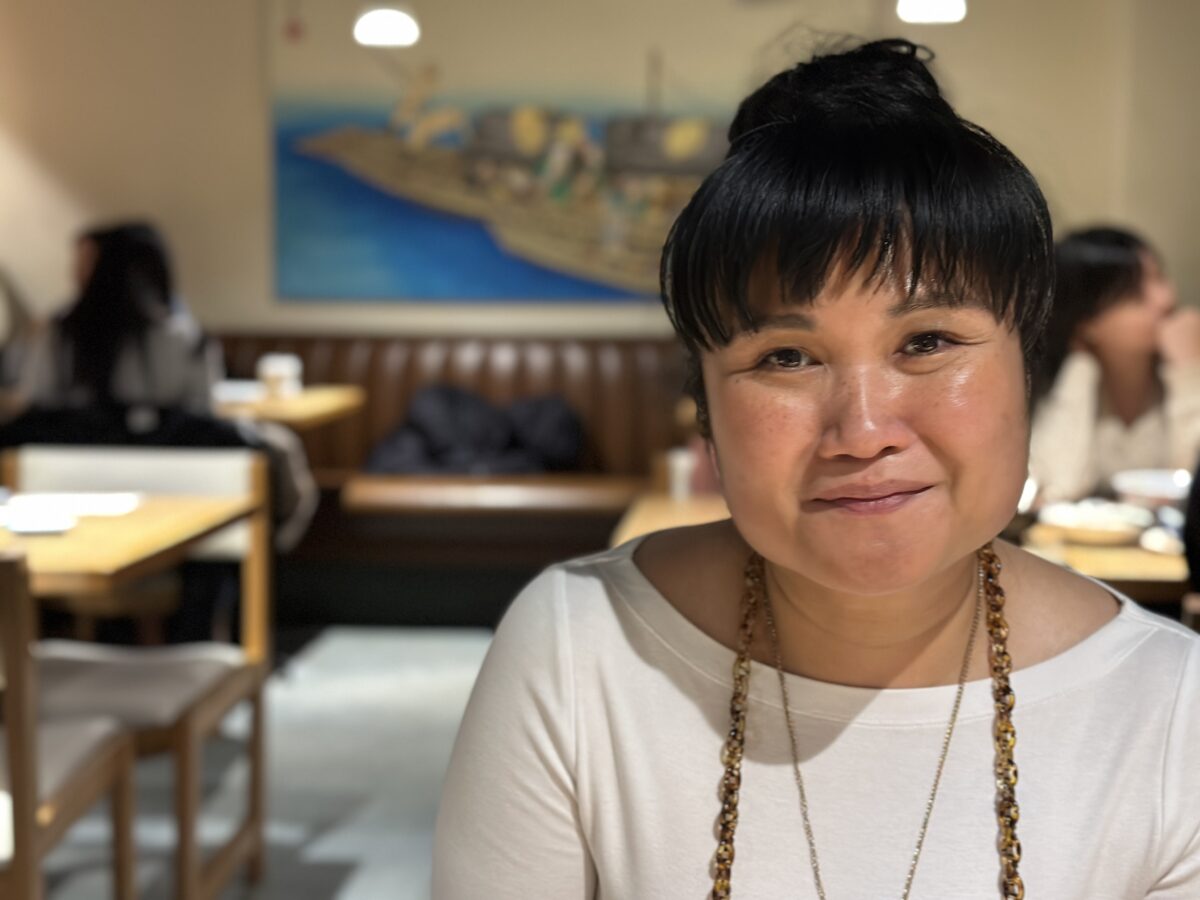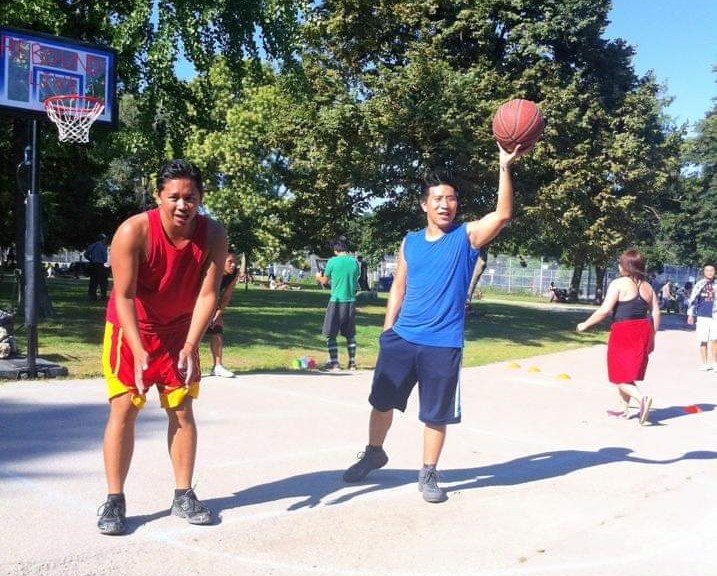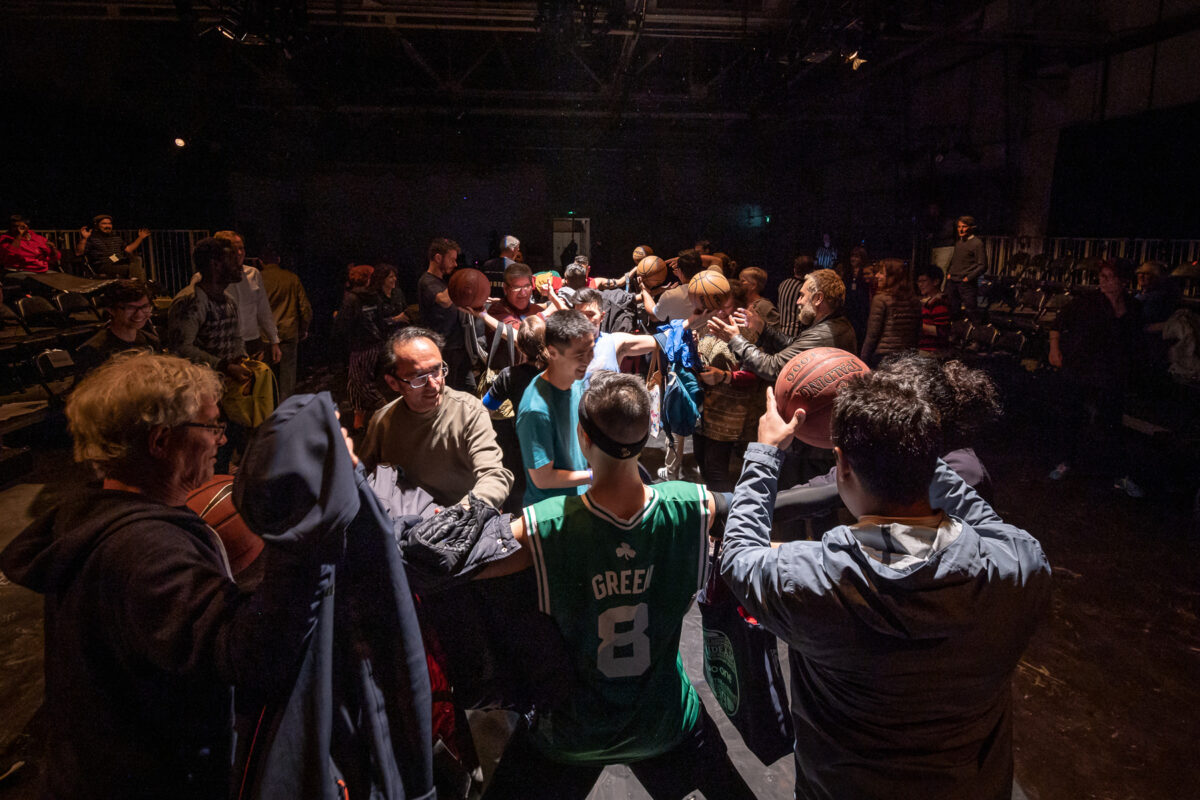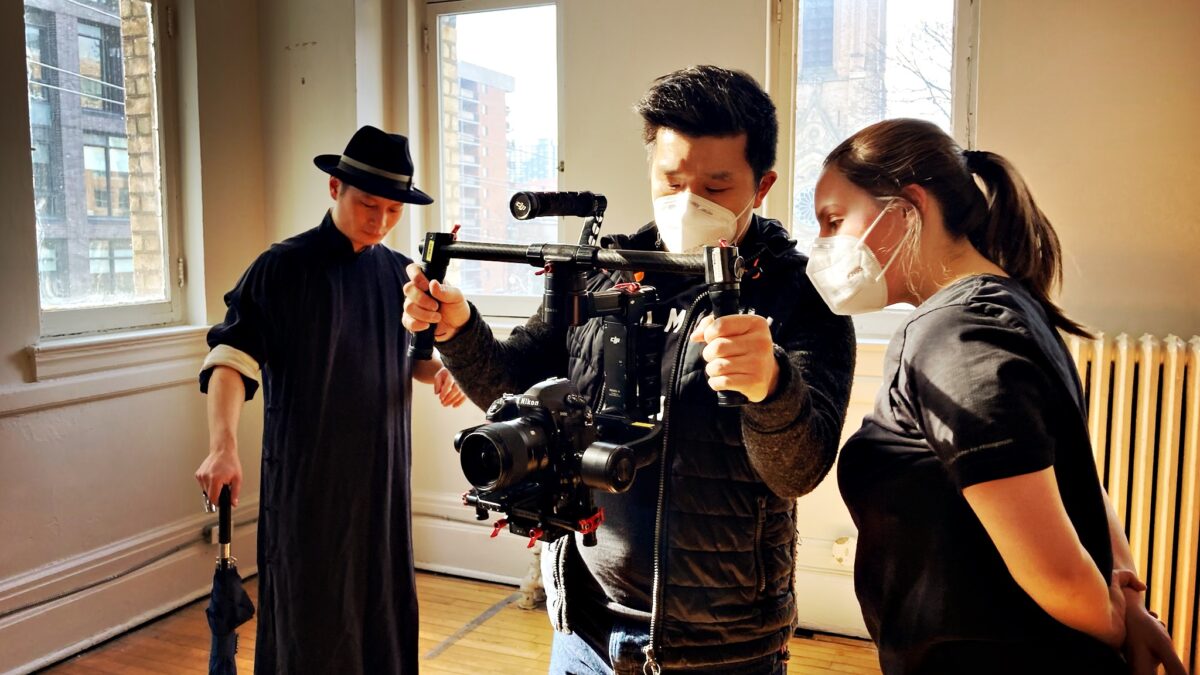Following a new path in the arts isn’t easy and requires a great deal of effort to succeed. However, for emerging filmmaker Richard Lee, a busy schedule won’t stop him from inspiring future creators to challenge the status quo and follow their passions in theatre.
After biking over to Carleton University’s Dunton Tower — alongside daughter, Eponine — for the 8th Annual Drama Studies Lecture, Lee further illuminated his efforts to advocate for greater diversity in the arts with Capital Current.
As an accountant turned actor, fight director, sound designer and theatre producer, Lee’s work in the arts has garnered theatre awards and nominations over the years, including three Dora Mavor Moore Awards and the infamous Harold Award in 2013.
Honours aside, Lee said his career was sparked by an undying need to share stories.
“Having done some theatre in high school, I knew that there was a connection between the audience and me that was important to my life. That’s why I went into theatre and as I’ve grown, I’ve really morphed that into the idea of storytelling in all its complexity.”
His deep passion for the arts has carried Lee through many challenges in his career, not only revolving around having people see beyond their limited perceptions of him as a Chinese Canadian, but also as a filmmaker with editing expertise.
“I would say that the challenge has always been having people see my value and see my worth, which is something my wife sees so very clearly in me.”

Nina Lee Aquino — the artistic director of English theatre at the National Arts Centre in Ottawa and his partner — is one of the most influential people in his life — encouraging him, offering him opportunities, believing in and challenging him as a artist.
“I value her critical eye and I value the way that she gives me critical feedback yet is still so supportive,” said Lee.
Although finding money, brands and people with whom to work still poses difficulties for his filmmaking, he proudly says he would continue to rise to the challenge and find his own opportunities to share the stories he wants to share.
“I am so interested in the new and different ways that we can actually have a really open space where everybody can feel like they belong. Where we have the capacity to do things, be rigorous, explore fully and be excellent and amazing at our craft.”
Byron Abalos, development director at Studio 180, a theatre company, met Lee while studying for a Fine Arts BA at Toronto Metropolitan University. At the time, he said, Lee and other young Asian artists in Toronto had co-founded fu-GEN Asian Canadian Theatre, where Abalos later became an administrator after graduating in 2004.
Abalos also faced challenges gaining a foot in the arts door. Not only was he one of the only BIPOC students in his class at theatre school, but he said that his education predominantly exposed him and forced him to change his accent to fit white Eurocentric stories where Shakespeare was the epitome of theatre.

“It was pretty messed up for me. I didn’t realize it at the time because … you believed your teachers, right? You go, ‘okay, if you’re telling me this is what it takes to work here in Canada and to be an actor, alright, I’m here to learn and absorb everything’,” said Abalos.
Today, with more people speaking up, the underlying white supremacy, patriarchy and lack of care and acknowledgement of the intersections of people he felt when he was a young Filipino Canadian actor has lessened over the years, he added.
“I think what newer generations are trying to fight for is that we shouldn’t have to give up the humanity pieces of our identity to work. You know, we should be able to use that. That should be our superpower in our work, our uniqueness,” said Abalos.
The need for diversity in storytelling is increasingly important in Canada, but Abalos warns it should not come at the cost of genuine storytelling.
“Diversity inclusion is such a big issue in storytelling and there is a commercial appetite to include it, but some of that is surface-level,” said Abalos. “What we really need is people of colour to be in decision-making positions, and we need them to be the producers. We need them to be the writers and the directors because that’s the only way to ensure a more accurate and fulsome portrayal of the richness of people’s lives who are different.”
This desire to ensure all voices are heard and accurately represented is one of the many things Abalos appreciated about working alongside his friend Lee over the past 20 years.
“He’s got such a great heart and he follows up. You know, he really puts into action, what he believes,” said Abalos.

The duo have undertaken several shows together for a group called the 6th Man Collective. One of the most notable was the interactive basketball play Monday Nights, which encouraged the audience to join the action. In particular, the second half of the play called “Balls Up” tested the strength and endurance of captains by having team members (the audience) load them up with items that they had brought. If the captains remained after two minutes, the team was encouraged to “trash talk” while they holding up the objects. As part of the activity, Lee said they also used sign language and assisted guests with physical limitations.
For Anusree Roy, adjunct professor of playwriting at the University of Toronto and the University of British Columbia, telling stories about diverse peoples, particularly those of colour and folks with disabilities, is important to her because those are her two identities.
“As a diverse person, [diversity] means visibility. So when you put a person with visible or invisible disabilities who is coming from a historically marginalized background community up front, we are allowing space for their art to thrive in the way that they intended for it to thrive. That, to me, is a true mark of diversity,” said Roy, a Dora Award-winning playwright and close friend of Lee.
She explained that people need an equitable platform to center themselves in their stories for true, diverse inclusion. One way to do this is to have media include more meaningful behind-the-scenes contributions from executive producers who are diverse and have lived experiences in stories about disability.
“Are there technically more folks of colour in rooms and telling stories? Of course. But to me, what I also want to celebrate is when the stories about and by folks of colour cross the finish line and audiences can really see them without it getting changed and edited in the whole process,” said Roy.
Having worked with Lee for about 20 years on various projects, including having him act in one of her plays, Sultans of the Street, and advocating in the editing process of her film, God’s Plan, she said he is not only one of the best creatives she had ever worked with but has offered a safe space to share her stories.
“Richard will never enter a room to serve his ego. He will enter a room to serve the craft of the storyteller. That’s it. That’s what he’s here to do, and that’s what he repeatedly does,” said Roy. “There’s a pleasure in creating with someone like that because there’s a safety in creating with him.”
Now largely dedicated to his filmmaking and work as the co-director of the National Theatre School’s Dramafest, Lee teased the upcoming release of a new short film — written by Roy –that will use a time travel to tell a story of man grappling with the loss of his wife.




